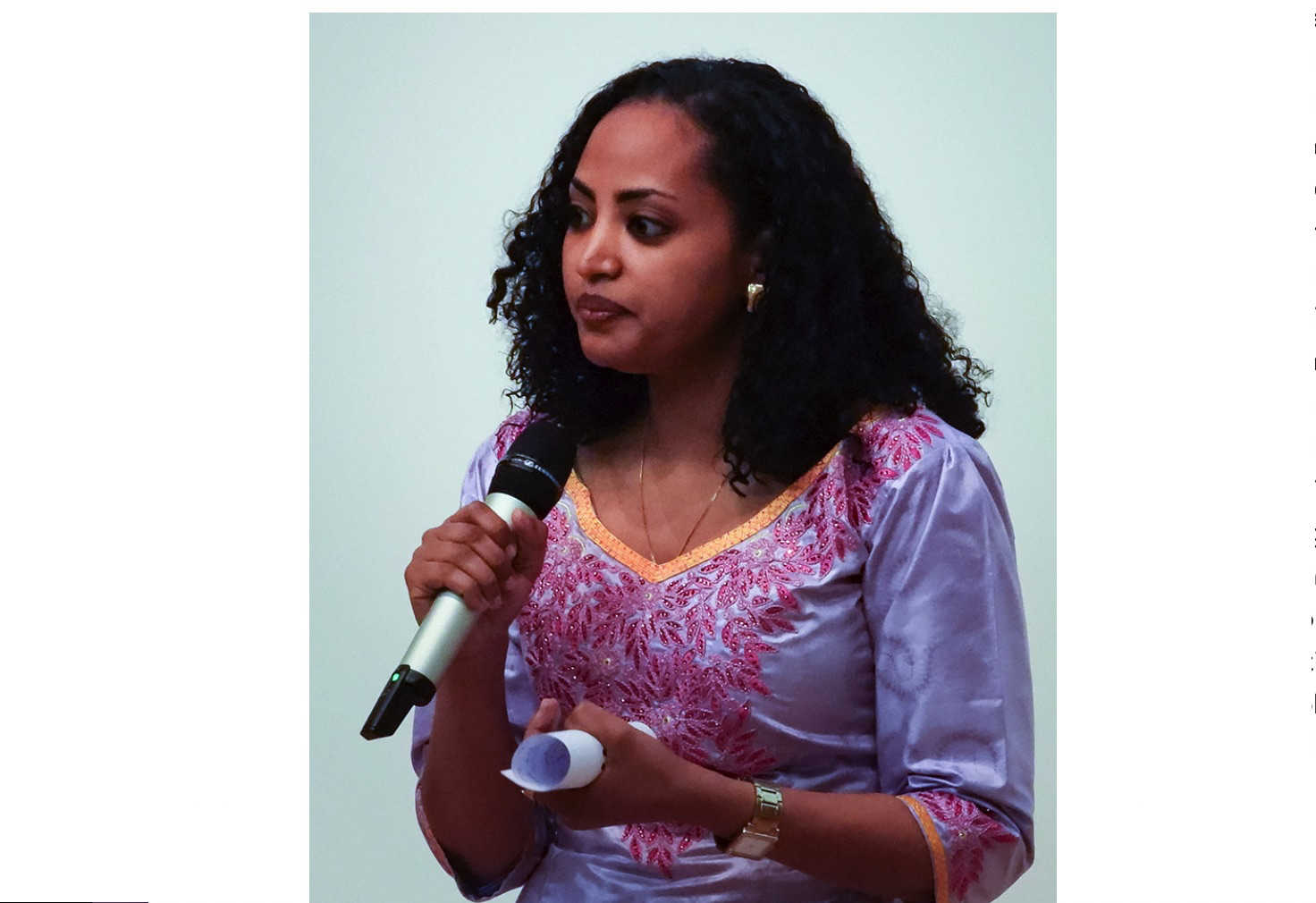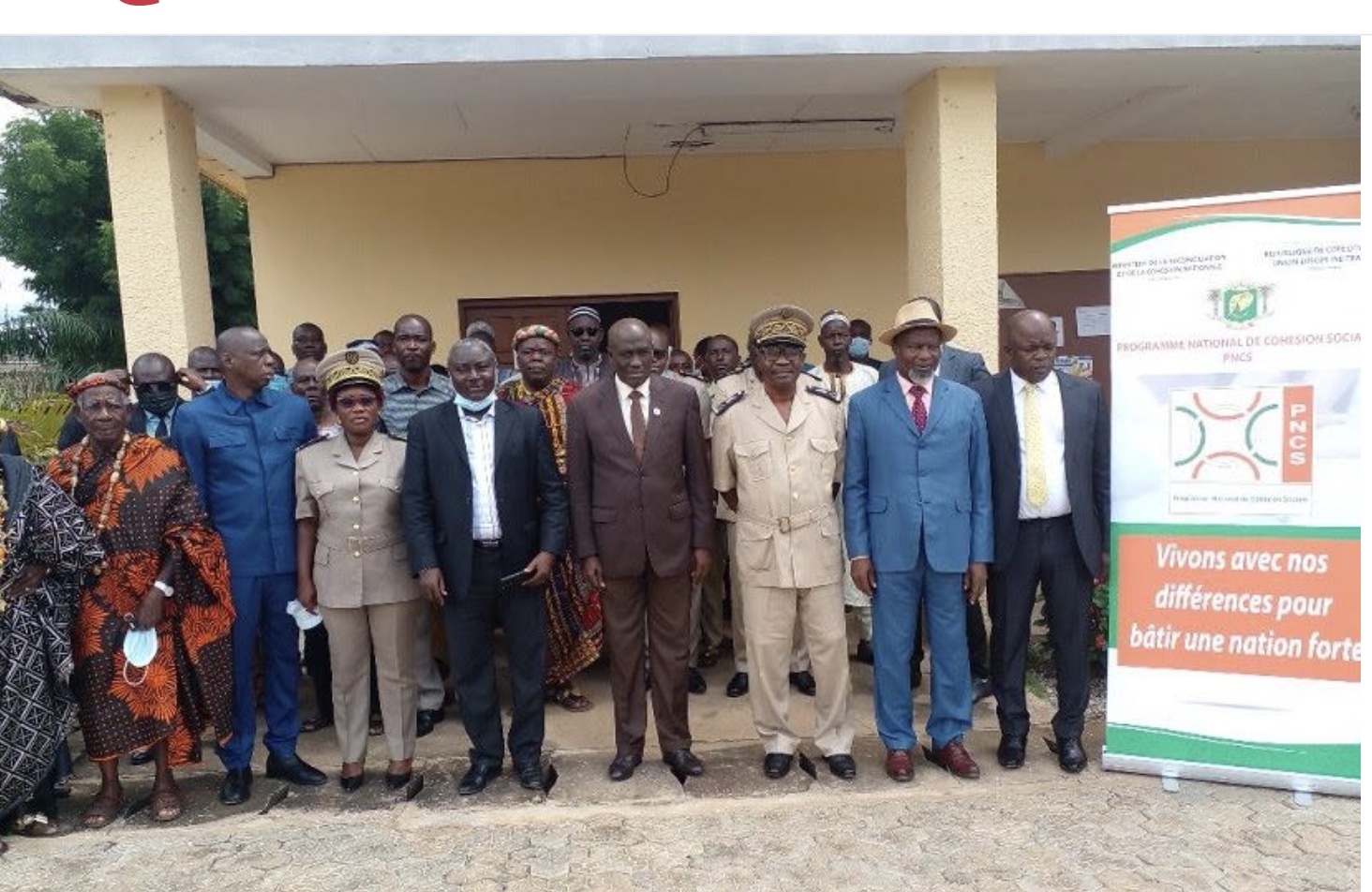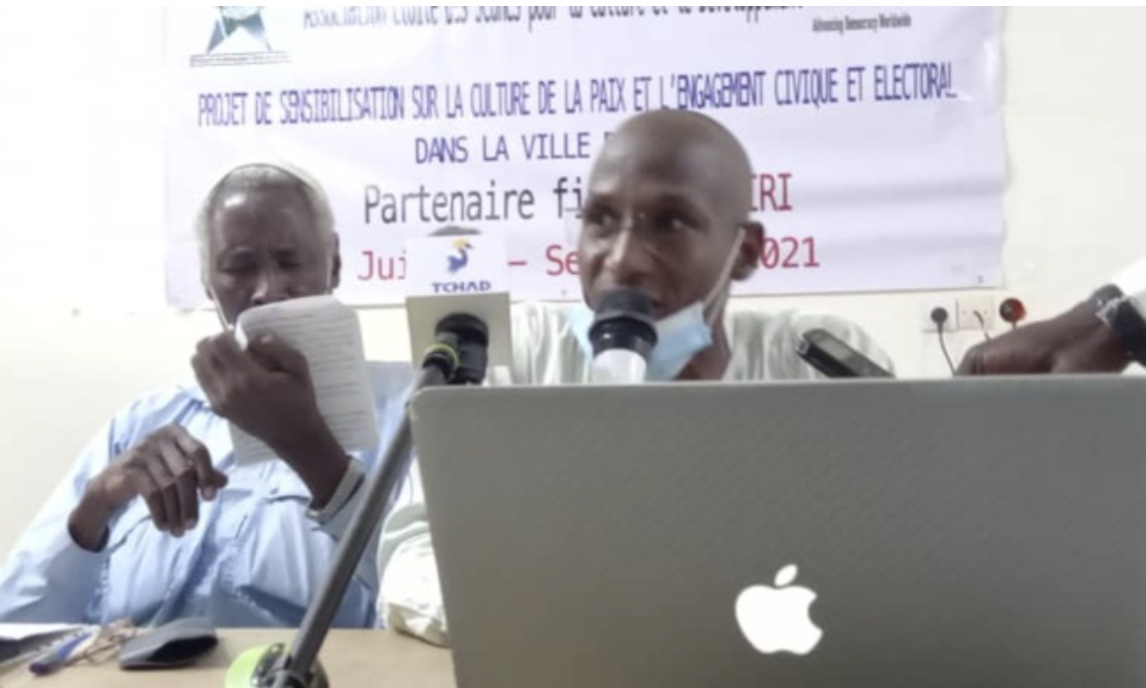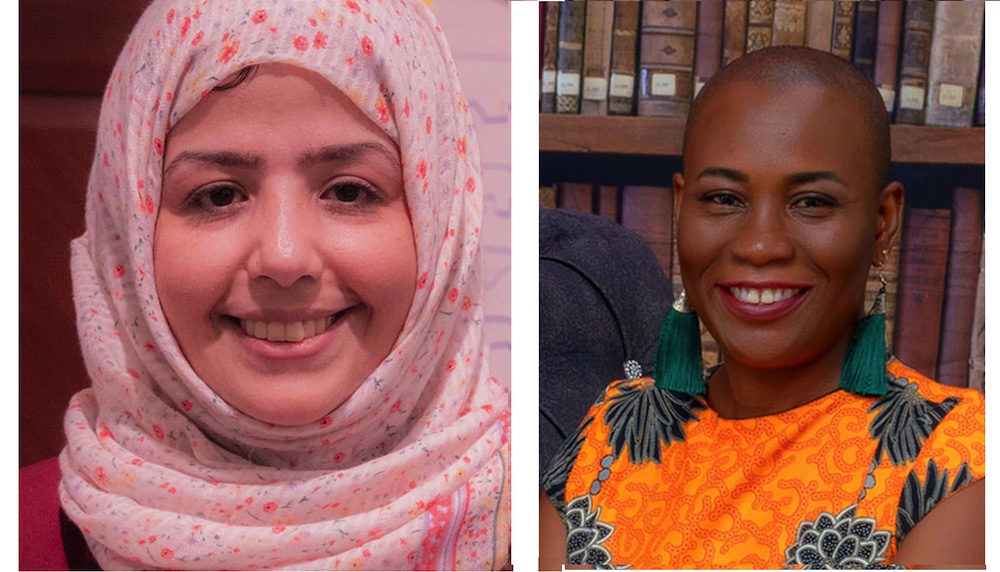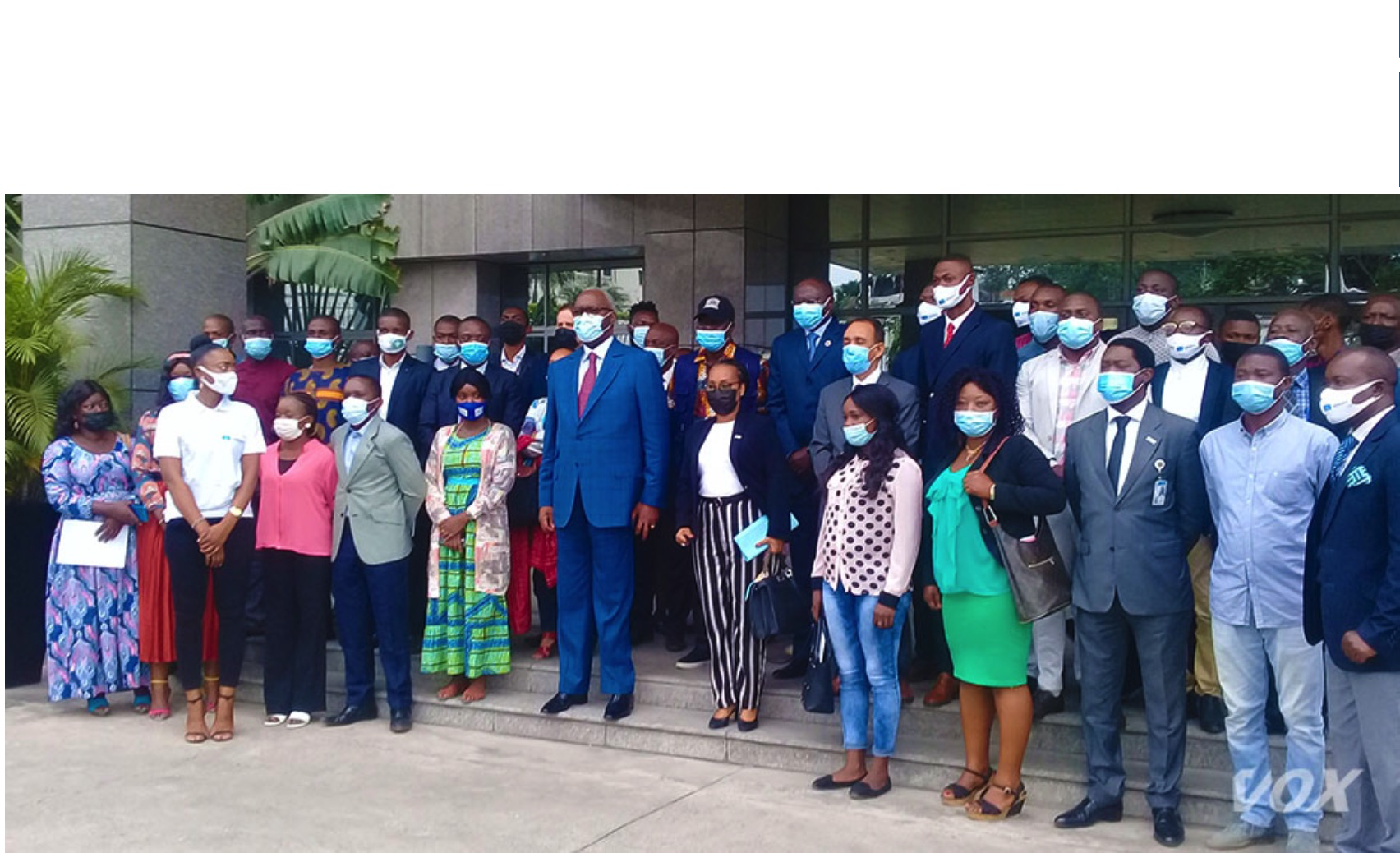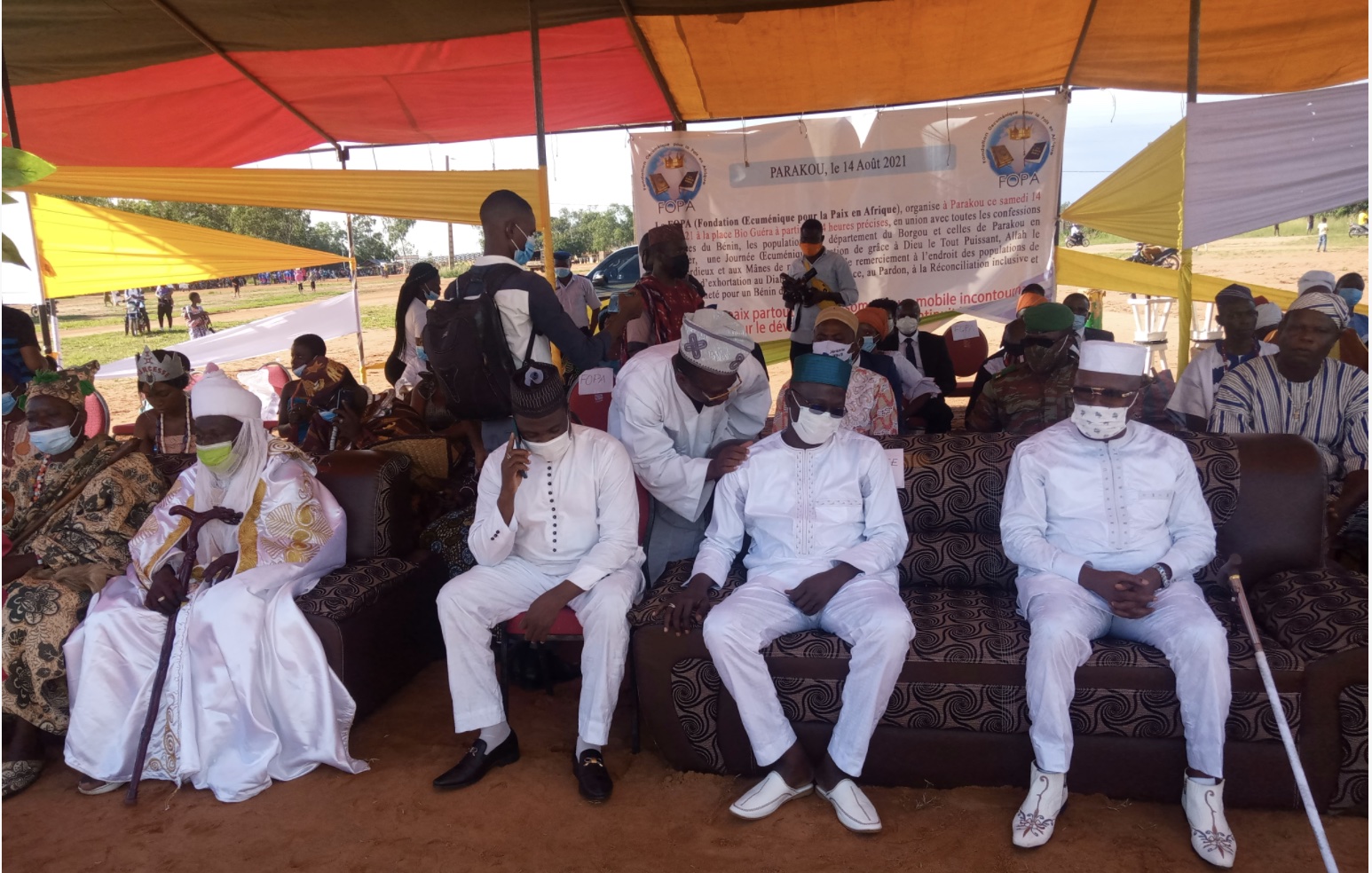DISARMAMENT & SECURITY .
An article from United Nations Mission in South Sudan
Some 60 participants from local administration, including women’s representatives, from Guit and Rubkona counties in Unity state attended an UNMISS forum on enhancing peace and stability.
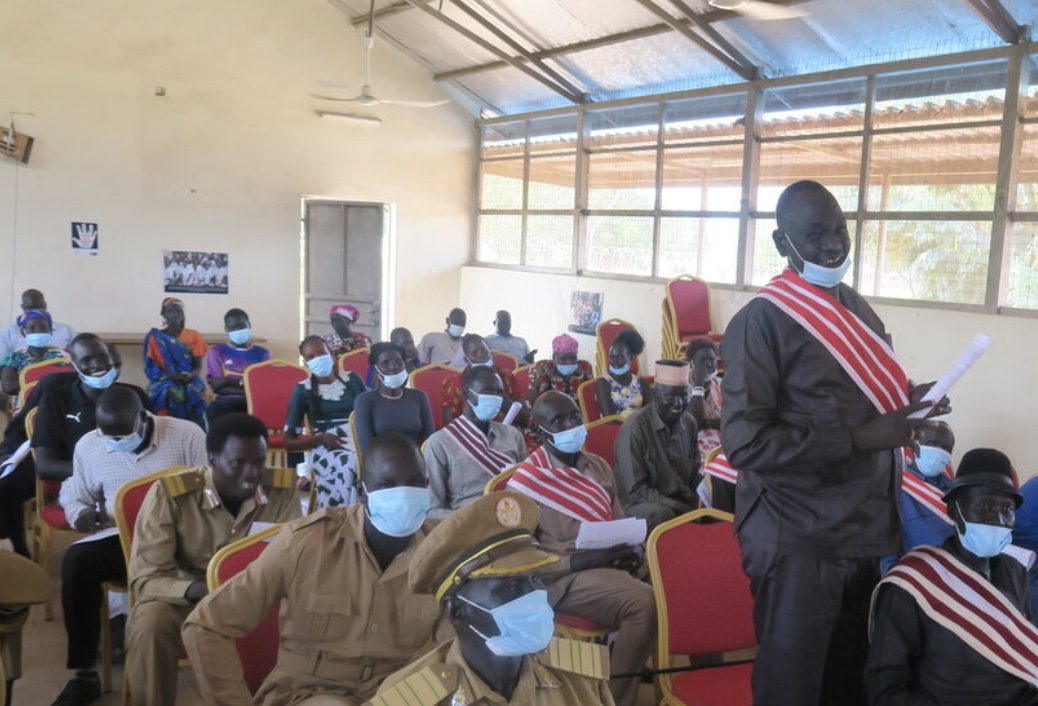
Photo by Jacob Ruai/UNMISS
“We must stop the perennial cycle of revenge killings if we are to live in peace and prosper,” said Jany Nyang, a traditional leader in Budang payam [administrative division] located within Rubkona county in Unity state.
“Frequent cattle raids lead to outbreaks of conflict and this, in turn, destroys the fragile fabric of people’s lives. Peace doesn’t just happen; we have to all shoulder our individual responsibility and learn to coexist if we want our children to have a bright future,” he continued.
Mr. Nyang was speaking at a three-day forum hosted by the Civil Affairs Division of the United Nations Mission in South Sudan (UNMISS), which brought together local administrators as well as traditional and community leaders from two counties, Guit and Rubkona, to find localized solutions to issues such as cattle rustling, intercommunal conflict and increasing social cohesion.
(Article continued in right column)
Can peace be achieved in South Sudan?
Can a culture of peace be achieved in Africa through local indigenous training and participation?
(Article continued from left column)
More than 60 participants, including women, participated in these discussions, which also included the important topic of cooperation among politicians from different parties across the state.
For Mary Nyakun Diew, a women’s representative, inclusion of women and youth in decision-making is key to establishing a sustained peace. “The participation of women in peacebuilding is of utmost importance. Women constitute 50 per cent of any society and this country’s leadership must make all efforts to include us in peace activities,” she stated.
Another participant, Nyakun Nyadiew explained that real peace cannot be achieved when every civilian is holding a gun. “If we want to live in a secure and free society, the government needs to carry out disarmament across the country. The proliferation of arms among civilians is one of the root causes of insecurity in our community,” he averred passionately.
For his part, Matthew Gatmai, Executive Director, Bentiu Town Council, advised communities to put their differences aside. “We cannot have a sense of peace if we don’t invest in it ourselves and our investment should take the form of tolerance. We need to forgive past hurts and look towards the future.”
According to Paul Adejoh, Civil Affairs Officer, UNMISS, discussions like this enable local-level authorities and communities to understand and own ongoing peace processes in the world’s youngest nation.
“As Civil Affairs Officers, we constantly engage with community leaders and members across South Sudan and we have come to realize that most conflict stems from a lack of investment in building peace from the ground up,” said Mr. Adejoh. “What we try and do is bring people together so that they can have free and frank discussions and realise that all citizens have a role to play in establishing durable peace. Every opinion counts, every individual matters.”

